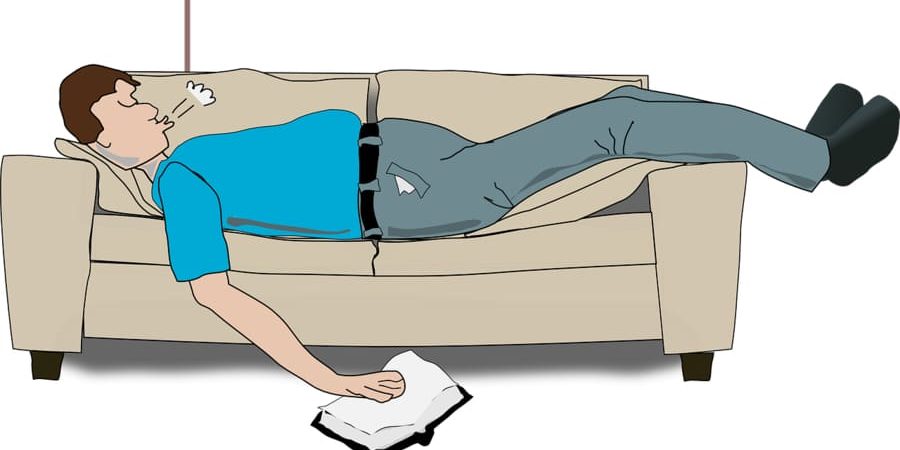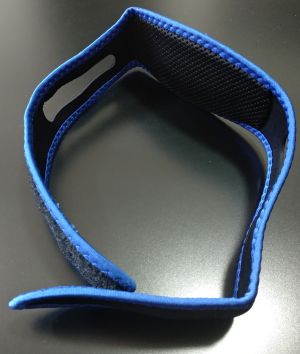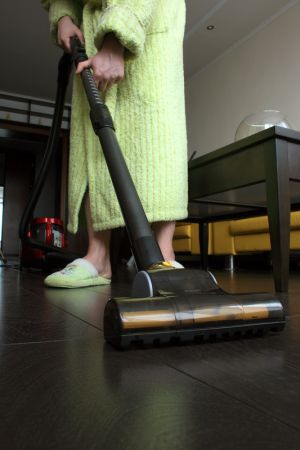
Medically Reviewed by
Nana Sebiskveradze – Doctor of Medicine (M.D.)
October 21, 2020
Snoring is often an annoying problem, and in some cases, it can be unhygienic or even dangerous for those who suffer from it. When searching for ways to stop snoring, you will find many options. I have struggled with this unpleasant issue for a long time and have always wanted to stop snoring. Throughout my research, I discovered several options that I want to share.
Disclaimer:
This blog post does not provide a guaranteed solution for snoring. These are simply suggestions that some people have found helpful for reducing or eliminating snoring. For proper advice on managing your snoring, you should consult a doctor who specializes in this field.
103 Tips That May Help You Stop Snoring
- Stop Sleeping on Your Back
The most common reason for snoring is sleeping in the wrong position.
When you lie on your back, your throat and tongue muscles relax and are more likely to obstruct your airway, causing vibrations that result in snoring. To help you stop sleeping on your back, try an anti-snoring backpack available on Amazon. - Raise the Head of the Bed
If you cannot avoid sleeping on your back, try raising the head of your bed by about four inches. Use blocks, wedges, or special pillows to elevate your upper body above the mattress. - Try to Lose Some Pounds

Being significantly overweight can cause snoring, especially if you have extra weight around your neck. When lying down, neck muscles can press on your throat and narrow your airway. Avoid unhealthy foods and start exercising to reduce your weight.
4. Don’t Overeat Before Bedtime
Eating too much in the evening can fill your stomach and put pressure on your diaphragm, making breathing more difficult and increasing the likelihood of snoring.
5. Try a Steam Bowl and Keep Nostrils Clear
Using a steam bowl before bed can reduce swelling in the nasal mucosa and help prevent snoring. Lean over a steam bowl for a few minutes and breathe deeply through your nose.
6. Try Nasal Strips
If your nasal passages are blocked, this can cause snoring. Nasal strips can help keep your nasal passages open and improve airflow.
7. Stop Drinking Alcohol at Night
Alcohol relaxes your tongue and throat muscles, which can increase snoring.
8. Stop Drinking Milk at Night
Drinking milk before bed can worsen snoring because it affects the mucus layer in your throat and mouth.
9. Avoid All Other Dairy Products

Milk is not the only culprit. Cheese, found in pizza and other foods, can also contribute to snoring.
10. Switch to Soy Milk
Switching to soy milk and removing lactose from your diet can have a significant impact on your snoring.
11. Get a New Pillow
Your pillow may cause your head, neck, or shoulders to be in an incorrect position, contributing to snoring. Replace your pillow if you think it’s part of the problem.
12. Get an Air Humidifier
If nasal congestion or allergies contribute to your snoring, a humidifier can help by keeping the air moist.
13. Keep Your Mouth Closed
Try to sleep with your mouth closed so you breathe through your nose instead.
14. Use an Anti-Snoring Chin Strap

A chin strap helps keep your airways open and your mouth closed during sleep, which can reduce snoring.
15. Keep Your Jaw in a Forward Position
- If your lower jaw is positioned too far back, your tongue may block your airway. A Mandibular Advancement Device (MAD) can help keep your jaw forward. Consult your doctor about this.
Also exercise your jaw muscles:
- Open your mouth and try to keep your molars together.
- Close your mouth and gently keep your molars together.
- Repeat 10–20 times.
16. Try an Anti-Snore Motion Pillow
How does the anti-snore motion pillow work?
The pillow uses inflatable airbags to gently turn your head when snoring is detected.
17. Don’t Smoke
Smoking is a major cause of snoring. Try to quit.
18. Treat Your Allergies
Allergies, especially seasonal ones, can cause snoring. Keep your bedroom free of mold, dust mites, and animal dander by cleaning frequently.
19. Do Some tongue Exercises
Strengthening your tongue muscles makes them stiffer and less sensitive to airflow toward the pharynx, helping reduce snoring.
Exercises:
1. Place the tip of your tongue against the palate of your mouth and slide the tongue back and forward. Repeat this about 20–30 times.
2. Lift your tongue up so that it lies against the palate of your mouth and return it back down. Repeat this 20–30 times.
3. Try to keep your tongue down with the tip of the tongue resting right behind your lower front teeth.
20. Eat Pineapple
Eating pineapple may help enhance your metabolic rate, and it is well known for its healthy properties. The calming properties of pineapple can diminish any swelling in your nasal sections.
21. Do Some Throat Exercises
Practicing throat exercises can help reduce snoring. Here are two examples:
Practice each vowel (a, e, i, o, u) out loud, moving your lips and tongue. Continue for 3-5 minutes, repeating several times daily.
Close your mouth and press your lips together. Hold for 30 seconds. Repeat several times per day.
22. Start Singing!
Singing is surprisingly effective for reducing snoring. If possible, sing every day for at least half an hour, and you may notice improvement soon.
23. Drink Plenty of Water
Dehydration can cause your throat and mouth to become dry overnight. This dryness makes mucus stickier and increases snoring. Be sure to drink plenty of water throughout the day and keep a glass of water on your nightstand.
24. Ask Your Spouse for Help
Your spouse or family members are likely aware of your snoring. Don’t hesitate to ask for their help. Together, you can research solutions and increase your chances of success.
25. See a Doctor
If you haven’t found a solution, consult your doctor, especially if snoring causes problems for yourself or loved ones.
26. Prepare for Your Appointment with Your Doctor
- Before visiting your doctor, prepare for your appointment to receive the best care.
- Write down any symptoms you’re experiencing.
- Make a list of all medications you take.
- Write down questions to ask.
Source: Mayoclinic.org
27. Use an Oral Appliance Designed for Snoring
Oral appliances can keep your airways open. Talk to your doctor for advice.
28. CPAP Machine
Consult your doctor to determine if you have sleep apnea that requires treatment with a CPAP machine.
29. Palatal Implants
Airways may be blocked if the muscles in your mouth have loosened. Palatal implants help keep the airway open and improve airflow.
30. Consider the UPPP
UPPP is a surgical procedure that helps elevate and stiffen the soft palate. Ask your doctor for more information.
31. Radiofrequency Tissue Ablation
Radiofrequency tissue ablation is a surgical option for snoring—discuss this with your doctor.
32. Laser Surgery
Laser surgery is another snoring treatment to consider. Talk to your doctor about available options.
33. Try the Tennis Ball Trick
Try placing a tennis ball under your back or inside your pajamas to prevent sleeping on your back and reduce snoring.
34. Sleep More
Not getting enough sleep may contribute to snoring. Aim for a regular sleep schedule to improve your rest.
35. Drink this Anti-Snore Juice
Try this homemade anti-snoring juice before bed:
- 2 carrots
- 2 apples
- 1/4 lemon
- 1″ stick of ginger
Juice the ingredients and drink before sleep.
36. Try an Anti-Snoring Ring
There is a claim that “the ring helped 85 percent of snorers who tried it.” Research these rings if interested.
37. Essential Oils
Research shows that essential oils such as thyme, lavender, lemon, and peppermint, used in sprays or gargles before bedtime, can help reduce snoring.
Source:
Healthyfocus.org
Pubmed
38. Snoring Tracking App
Use a snoring app, like SnoreLab, to monitor your snoring during the night and inform your next steps.
39. Try Smart Nora
Order and try the Smart Nora anti-snoring device. It comes with a 100% money-back guarantee.
40. Try Snorek App
If you want alerts when you start snoring, consider the Snorek app. “Snorek detects, monitors, and warns you about snoring by interpreting audio.”
41. Chamomile

Chamomile tea is especially helpful for people suffering from restlessness at night. Chamomile reduces congestion and is known for its calming properties. The medical benefits of this daisy-like plant have been documented by researchers at Case Western Reserve University.
42. Geranium
Geraniums are blooming plants with white, pink, blue, or purple petals. Certain types, found in South Africa, may aid with acute bronchitis. The oil may also help soothe a sore throat, reducing snoring.
43. Get an Adjustable Bed
An adjustable bed can help reduce snoring by letting you change your sleeping angle. Learn more here.
44. Try SleepPro Contour Adjustable Mouthpiece
This adjustable mouthpiece differs from other devices. Consider it if you’re looking for new solutions.
45. Try Magniflex MagniSmartech Anti-snoring Bed
The Magniflex MagniSmartech bed is an option, but it costs $20,000. Only invest if it’s within your budget.
46. Get the Nectar Memory Foam Mattress
A new mattress, such as the Nectar memory foam mattress, may help reduce snoring.
47. Olive Oil
People experiencing sleep apnea are encouraged to use olive oil instead of butter or saturated fats due to its beneficial monounsaturated fatty acids (MUFAs).
48. Keep Pets Out of Your Bedroom
If you have allergies, letting pets sleep in your room may worsen snoring. Keep your bedroom clean and pet-free if possible
49. Avoid Taking Sleeping Pills
Many sleeping pills relax throat muscles, worsening snoring. Consult your doctor before taking any.
50. Remove Allergens from Your Bedroom

Keep your bedroom free of allergens by vacuuming regularly and changing bed linens often.
51. Try Over-the-Counter Nasal Strips
Nasal strips help open your nasal passages, making it easier to breathe through your nose.
52. Fight Nasal Congestion
Chronic nasal symptoms can worsen snoring. Traditional remedies, such as pumpkin seeds, may help alleviate sinus swelling.
53. If You Are an EMT or EMR, Consider Using an ADC Guedel Airway Kit
Use the ADC Guedel Airway kit only if you are authorized. Proper use can help prevent snoring.
54. Try Throat Spray
Throat sprays constrict the mucus in the throat, reducing secretion and increasing the airway’s width. This can help with throat-related snoring.
55. Try Chewable Tablets
Chewable tablets can relieve symptoms commonly associated with non-apneic snoring.
56. Try Nasal Spray
Nasal sprays help with snoring caused by a blocked nose, cold, or allergies by keeping passages open for up to eight hours. Always follow usage instructions.
57. Eat More Fish
Replacing some weekly red meat meals with fish, like salmon, may reduce snoring by increasing beneficial body proteins.
58. Goldenseal
Goldenseal has medicinal properties that may help with nasal and airway problems and comes as powder, fluid, or tea.
59. Spearmint
Spearmint can help with snoring tied to digestive issues. Herbal supplements and teas may be beneficial.
60. Fenugreek
Fenugreek may lessen snoring caused or worsened by sinus and respiratory problems.
61. Vitamin C
A deficiency of vitamin C may lead to colds and sinus problems, which contribute to snoring. Increasing vitamin C intake may help.
62. Honey
Honey can soothe throat irritation. Dissolve in hot water and drink before bed to potentially reduce snoring.
63. Peppermint Tea
Peppermint helps reduce swelling. Mixing it with tea can treat wheezing and nasal blockage.
64. Stop Sleeping on the Couch
Sleeping on the couch can worsen snoring and disrupt rest. Opt for your bed.
65. Try to Sleep on the Floor
Sleeping on the floor can sometimes help with snoring. Research tips to make this comfortable.
66. Record Your Snoring to Get Motivation
Recording your snoring at night can raise awareness and encourage you to seek solutions. You may also identify the type of snoring you have.
67. Get an Anti-Snoring Pillow
Specific anti-snoring pillows are designed to help reduce snoring. Try this one and see if it’s effective for you.
68. Try an Anti-Snoring Tongue Sleeve
Among various anti-snoring mouthpieces is the anti-snoring tongue sleeve, worth considering after checking reviews.
69. Try Other Anti-Snoring Devices
Multiple anti-snoring devices are available. Explore these options to find what works for you.
70. Regular Bedtime
Go to sleep at the same time each night to regulate your sleep schedule, which can help prevent snoring.
71. Avoid Blue Light
To maintain a regular sleep schedule, avoid blue light at least an hour before bed.
72. See Your Doctor If You Are Pregnant and Snoring
Pregnant women who snore should consult their doctor promptly.
“In some cases, snoring can be a sign of gestational diabetes. Make sure to get your glucose screening test between weeks 24 and 28 (or earlier if advised).”
Source: Whattoexpect.com
73. Comfortable Sleeping Position
Ensure you have a comfortable sleeping position throughout the night to help reduce snoring.
74. Reduce Stress – Calm Down Before Bed
Try to reduce stress and relax before bedtime.
75. Take a Shower
If nasal congestion causes your snoring, take a warm shower before bed. The steam may help clear your nasal passages.
76. Blow Your Nose Before You Go to Bed
Breathing through the mouth due to a blocked nose causes snoring. Clear your nasal passages before sleeping to improve breathing and rest.
77. Maintain a Sleeping Routine
Irregular sleep schedules can worsen snoring. Fixing your sleeping schedule may alleviate the problem.
How to fix your sleep schedule
78. Onions
Onions contain antioxidants and have decongestant properties. Add onions to your meals to enjoy health benefits and relieve snoring.
79. Avoid Foods High in Carbs
Eating carb-rich foods in the evening can worsen snoring by increasing sugar levels. Avoid refined starches and sugar near bedtime.
80. Mouth Strips
Mouth strips like SomniFix can help keep your mouth closed during sleep. Many users report positive results.
81. Ghee
Ghee has beneficial properties. Applying warmed ghee inside your nostrils twice daily may reduce snoring.
82. Don’t Eat Too Many Sweet Desserts
Processed sugar can worsen heartburn and snoring. Limit sweet desserts, especially before bedtime.
83. Eat a Large Breakfast and Lunch, Not So Much at Night
Eating heavier meals earlier in the day reduces the risk of snoring at night.
84. Find Tips from Others Who Snore
Forums like Reddit’s snoring community can offer valuable advice and personal stories.
85. Avoid Animal Products
Animal products like meat, fish, poultry, and eggs increase mucus production. If you do consume them, choose less processed options.
Protein intake recommendations:
“The National Academy of Medicine advises adults to get at least 0.8 grams of protein per kilogram of body weight daily.”
Source: Harvard Nutrition.
86. Get an Allergy Test
Allergies often cause nasal and throat issues that contribute to snoring. Treating allergies can help reduce snoring.
87. Ask Your Doctor About Tranquilizing Medication
Some medications relax throat muscles and worsen snoring. Inform your doctor if you snore before using sedatives.
88. Avoid Antihistamines
Ask your doctor for alternatives to antihistamines, which can worsen snoring. Steam inhalation with eucalyptus may be a good option.
89. Turmeric
Turmeric is a powerful spice with anti-inflammatory effects. Adding turmeric to your diet may help reduce snoring.
90. Book a Sleep Study Appointment
If you cannot find a solution, schedule a sleep study to diagnose the cause of snoring and find treatment options.
91. Schedule a Dentist Appointment

Dentists may suggest snoring reduction strategies, such as weight loss or reduced alcohol consumption at night.
92. Try SleepRite Micro Anti-Snore Device
The SleepRite Micro Device gently opens airways with soft silicone nose buds for maximum comfort.
93. Try a Different Kind of Blanket
A weighted blanket can relax respiratory muscles and improve breathing, helping mild snorers without sleep apnea.
94. Learn to Play a Mouth Harp
Playing the mouth harp exercises mouth muscles, helping reduce snoring.
95. Cardamom
Mix half a teaspoon of cardamom powder in warm water and drink before bed. Cardamom is an expectorant that can decrease snoring.
96. Make a “Fish Face”
Press your lips together and suck in your cheeks. Move your lips like a fish. Repeat several times daily to strengthen muscles that reduce snoring.
97. Nettle
Drinking nettle tea may help with snoring issues.
98. Don’t Eat Ice Cream Before Bed
Ice cream increases mucus production, worsening snoring.
99. Don’t Eat Yogurt Before Bed
Yogurt has similar effects to ice cream. Reserve it for mornings.
100. Try MedCline Therapeutic Body Pillow
The MedCline Body Pillow keeps you sleeping on your side, helping reduce snoring.
101. Don’t Use Illegal Drugs
Illegal drugs cause sleep difficulties and snoring.
102. Learn to Play the Didgeridoo

Playing the didgeridoo strengthens upper throat muscles, helping with snoring and sleep apnea. This is a form of Myofunctional Therapy.
Find tips at The Breath Institute
103. Book an Appointment for Tonsil Surgery
Enlarged tonsils and adenoids cause snoring in children. A pediatrician can evaluate and recommend extraction if needed to resolve snoring-related issues.
Sources:
https://www.webmd.com/sleep-disorders/understanding-snoring-treatment
https://www.webmd.com/sleep-disorders/features/easy-snoring-remedies#1
https://www.helpguide.org/articles/sleep/snoring-tips-to-help-you-and-your-partner-sleep-better.htm
https://www.phillymag.com/be-well-philly/2010/09/20/13-fast-ways-to-silence-to-snoring/
[1] https://www.hsph.harvard.edu/nutritionsource/what-should-you-eat/protein/
[2] https://www.thebreatheinstitute.com/
Accessed September 1, 2025.

